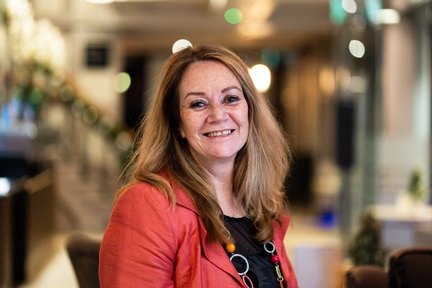Nursery staff blame screen-time for decline in children having imaginary friends
A new survey has shown that fewer children have imaginary friends than they did five years ago, with screen time being cited as the major factor in making children less imaginative.
 The survey by leading reviews site for nurseries, daynurseries.co.uk, received 1,000 responses from nursery owners, managers and staff and has highlighted the impact technology is having on children.
The survey by leading reviews site for nurseries, daynurseries.co.uk, received 1,000 responses from nursery owners, managers and staff and has highlighted the impact technology is having on children.
The poll shows that just under half of nursery staff (48 per cent) said children at their nursery have imaginary friends.
This number is seen as a decline, with 72 per cent of respondents saying fewer children have imaginary friends than five years ago. It is perhaps unsurprising that with the rise of readily available technology such as smart phones and tablets to keep children amused, that nurseries blame technology, with 63 per cent saying screens are making children less imaginative.
A spokesperson for daynurseries.co.uk, called it “sad that nursery staff have seen a decline in children having imaginary friends” and attributed it to helicopter parents filling up their children’s lives with activities and screen-time.
“Parents can tend to fill every hour of a child’s day with activities and screens and they are no longer left to get bored. When children are left to their own devices, it forces them to be creative and discover an inner world where they meet fun imaginary friends like Puff the Magic Dragon.
“Parents need take a step back and stop micro-managing their children and leave them to play and daydream so they can become adults who are innovative and resilient and think outside the box,” said daynurseries.co.uk’s spokesperson.
David Wright, owner of Paint Pots Nurseries, agreed that less children have them now than previously and backed up daynurseries.co.uk’s sentiments, saying: I think that children are not allowed to be ‘bored’ anymore. When children have free time to themselves, they find something creative to do with their mind, such forming an imaginary friend.
“I don’t believe it is screens per se that have contributed to the decline, it’s the time these screens take up. The biggest effect screens have, is on the children’s ability to communicate with each other and problem solve. Screen applications are predictable and programmed, unlike real life.
“Our children are less able to cope when things go wrong if they spend large amounts of time on screens as they haven’t practiced the kills of problem solving, social interaction and how to build their own resilience.”
Sarah Steel, managing director of The Old Station Nursery Ltd, believes it is adults that are failing children by not taking time and interest in children’s imaginary play and are too often themselves glued to screens and phones.
She said: “There is already a lot of guidance available on imaginary friends, for those who want it. We don’t want to be too much of a nanny state by telling parents what to do. However, tech manufacturers must take some responsibility and stop aiming devices at children – iPad holders on prams are simply awful! If nurseries can help encourage parents to read to their children or carry out different activities, as opposed to encouraging more screen time, that’s so much better.”
Latest News
 24-Apr-24
Find out the top nurseries in 2024
24-Apr-24
Find out the top nurseries in 2024
 06-Jun-23
UK's top nurseries in 2023 revealed
06-Jun-23
UK's top nurseries in 2023 revealed
 16-Dec-22
Winter Wonderland: Ice sculptures, aerial acrobatics and white knuckle rides
16-Dec-22
Winter Wonderland: Ice sculptures, aerial acrobatics and white knuckle rides
 28-Nov-22
5 mins with Caroline Wright, early childhood director at Bright Horizons
28-Nov-22
5 mins with Caroline Wright, early childhood director at Bright Horizons
 25-Nov-22
Camilla gives nursery children Paddington bears left as tribute to Queen Elizabeth II
25-Nov-22
Camilla gives nursery children Paddington bears left as tribute to Queen Elizabeth II